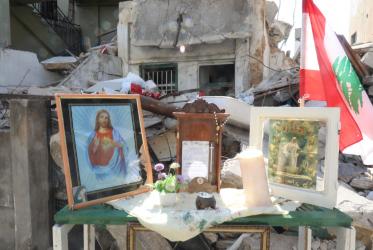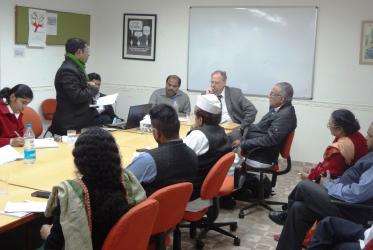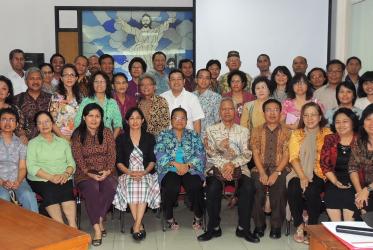Displaying 21 - 32 of 32
Killer Robots? Moral questions pervade UN conference
23 April 2015
Momentum builds for ban on nuclear weapons
16 December 2014
Indian churches speak against discrimination faced by Dalits
26 February 2014
WCC Assembly addresses contemporary public issues
08 November 2013
Assembly renews churches’ commitment towards justice and peace
08 November 2013
Concern and solidarity for Bangladesh
17 May 2013






